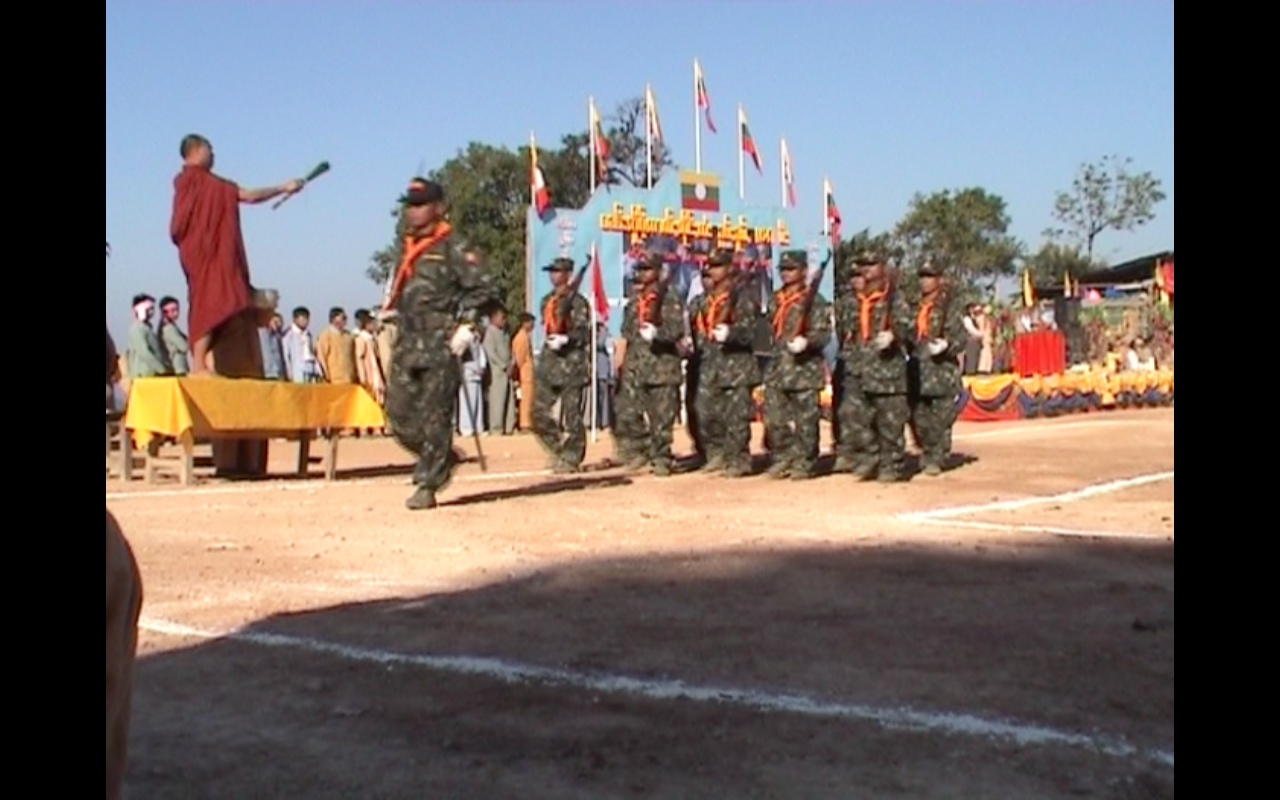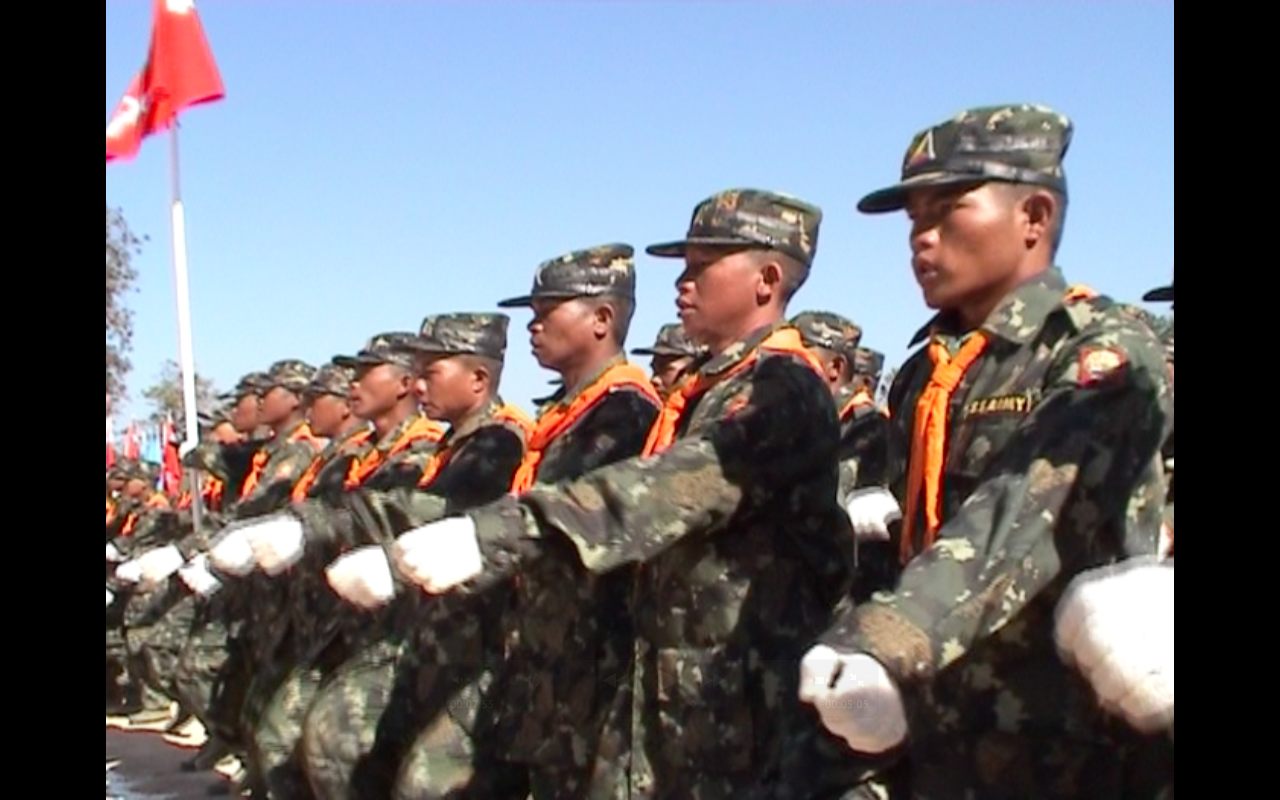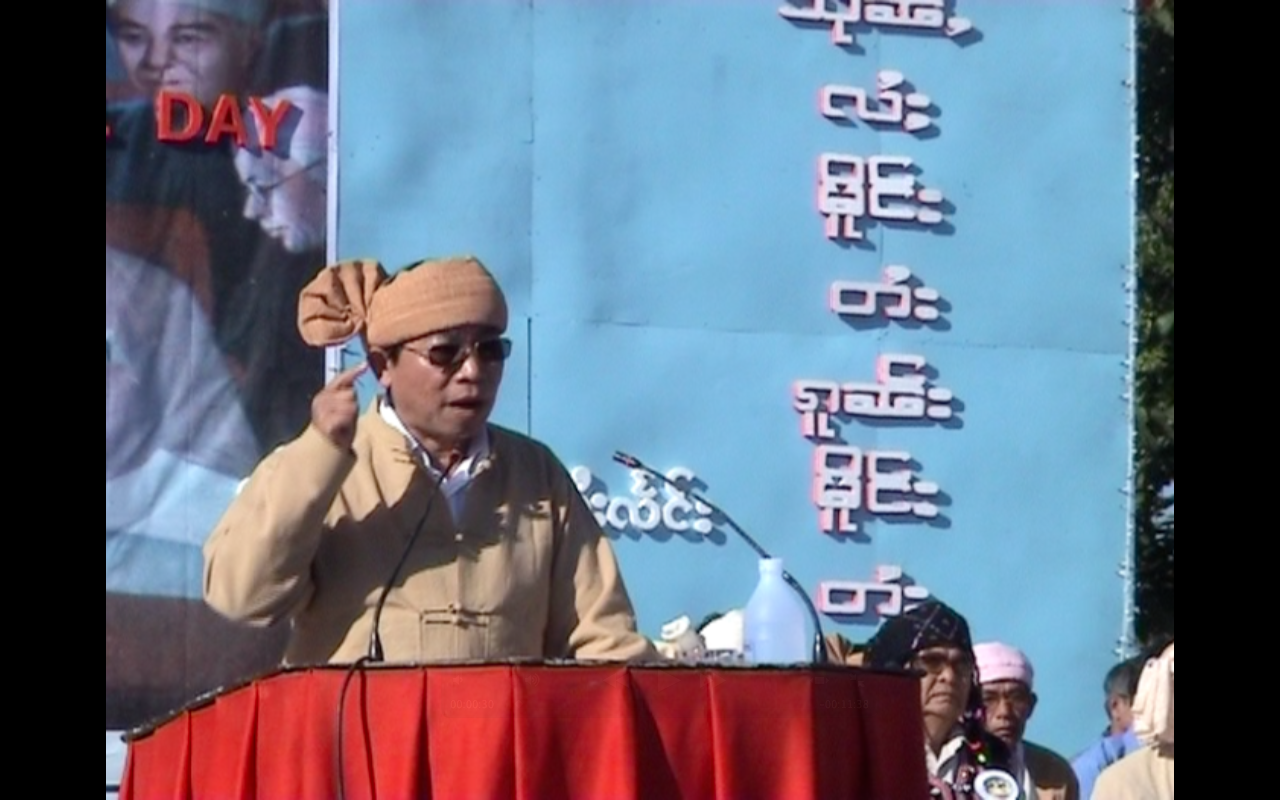Loi Tailaeng, at the Thai-Burma Border: The Shan State Army – South, one of the handful of remaining non-ceasefire groups engaged in Burma’s decades-long civil war just celebrated Shan National Day. This past 7 February 2011 marks the sixty-fourth anniversary of the day in which Shan political leaders assembled in the town of Panglong and declared themselves a nation, thus adopting a national flag as well as a national anthem. In the following week, the group signed the Panglong Agreement, the document which signified ethnic unity for the purposes of Burmese colonial independence, and, crucially for Shan politicians: the right to secede from the Union of Burma following ten years’ initial membership. Today, in 2011, here at Loi Tailaeng, the main base for the Shan State Army, commemoration festivities included military parades, speeches by SSA commander Sao Yawd Serk, representatives from other ethnic nationalities including Karenni and Mon, as well as a rock concert, traditional Shan dances, singing verse poetry in the Shan language, and carnival games of skill with prizes.
For the beginning of National Day itself at 8:30 in the morning, locals, monks, journalists and onlookers assembled for a military parade featuring hundreds of Shan State Army soldiers. On the main parade grounds of Loi Tailaeng, columns of SSA troops, led by a drum corps, marched up the hill. They then assumed their respective places on the parade ground in front of the stage, where they received blessings from a Theravada Buddhist monk. The stage itself featured an elaborate backdrop facsimile of a painting depicting General Aung San together with Shan and other ethnic nationality leaders signing the Panglong Agreement, with the words, “We still remember the Panglong Agreement” prominently displayed in the Shan script next to the giant historical image. Following the assembly of troops, Sao Yawd Serk, dressed in Shan ethnic costume, addressed the audience for about twenty minutes. As part of his speech, in addition to reminding his listeners of the significance of the Panglong Agreement, Sao Yawd Serk emphasized the ethnic pluralism of the Shan State:
“We need to understand that today is our National Day for the Shan State because this national day is for all the races within Shanland be they Akha, Lahu, Wa, Palaung, Pa-o, everyone is included … We have territory, we have our people, we have language, we have religion, we have history; these are great things which we have had for a long time…. (w)e have endured Burmese domination of our land for 64 years. Don’t let it become 100 years!”
Following Yawd Serk’s speech, and other speeches by various politicians from other ethnic nationality groups, there were some military drills, and finally the drum corps led the soldiers away from the parade grounds. By nightfall, the stage area and amplification system were taken up by Shan rock bands, and civilians and soldiers alike joined in the revelry, dancing and singing along to various renditions of Shan-language rock music, with both apolitical themes as well as some that are fiercely nationalist in character, such as Jai Moo’s classic, Wan Tai Tay Lawt Le’o or “On Shan Day We Will Have Independence.”
These festivities and vibrant assertions of Shan national pride come at a time of growing tension between various stakeholders in Burma’s borderlands and the Burma Army. Prior to, as well as immediately following Burma’s national elections in November 2010, the Burma Army sought to bring more of the peripheral ceasefire groups (In Burmese: nyeinchanyaye apwe) under its wing by pushing them to become Border Guard Forces (BGF). Such a change would thus force these groups to surrender much of their autonomy they have enjoyed since the 1989 spate of ceasefire agreements spearheaded by the former Burmese Military Intelligence chief Khin Nyunt. The most powerful ceasefire group is the United Wa State Army (UWSA), boasting 20,000 troops in bases scattered throughout the Shan State. The Shan State Army – South never became a ceasefire group, and the UWSA has clashed with the SSA at the behest of the Burma Army.
But there hasn’t been direct engagement between the United Wa State Army and the Shan State Army – South at Loi Tailaeng since 2005.
 Facebook
Facebook  Twitter
Twitter  Soundcloud
Soundcloud  Youtube
Youtube  Rss
Rss 

